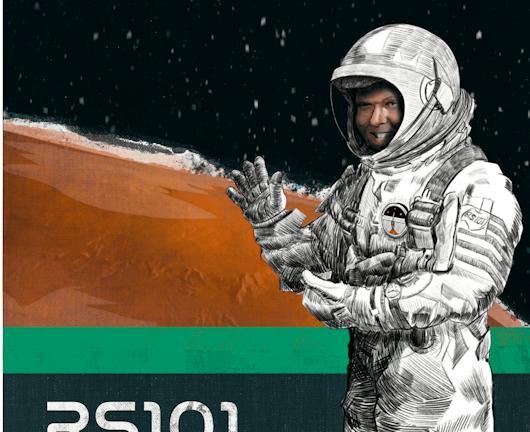MOOC List is learner-supported. When you buy through links on our site, we may earn an affiliate commission.

MOOC List is learner-supported. When you buy through links on our site, we may earn an affiliate commission.
Round out the course by getting a first-hand look at space shuttles, space stations, space tourism, and how companies are opening up space exploration.
This course is part of the Rocket Science 101 Specialization.
What you'll learn
- Describe the progression and the reasoning behind the US's Mercury, Gemini, and Apollo programs
- Describe the costs and benefits of the space shuttle program, and why the US lost two shuttles
- Describe how Germany developed rockets for warfare in WWII and how the US and USSR used this technology to develop their rocket programs
Syllabus
Week 1: The Advent of Modern Rockets
Welcome to the History of Rocket Science course and to Week 1: The Advent of Modern Rockets. This module will take you on a journey through the fascinating history of rocketry, beginning with the time before modern rockets existed and leading up to the post-WWII era. By the end of this module, you will be able to recognize what came before modern rockets, comprehend the cost of rocketry in WWII, and comprehend the development of rocket inventions in WWII in Germany. You will also be able to recognize how the US and USSR responded to post-WWII, setting a strong foundation for the rest of the course. Let's dive into the fascinating world of rocket science!
Week 2: The Space Race
Welcome to the second module of the History of Rocket Science course—Week 2: The Space Race. This module will take you on a thrilling journey through one of the most exciting periods in the history of rocketry—the space race. By the end of this module, you will be able to comprehend the political paradigm of the space race: communism vs. capitalism, recognize the USSR's early victories in the space race, identify the components of the US plan to get to the moon, and explain why the USSR plan failed to get to the moon. Join us as we relive the excitement and intrigue of the space race and gain a deeper understanding of the history of rocket science.
Week 3: The Space Shuttle Era
Welcome to the third module of the History of Rocket Science course—Week 3: The Space Shuttle Era. This module will explore the era of the Space Shuttle program, which marked a new phase in the history of space exploration. We will examine the evolution of the shuttle program and its impact on the exploration and utilization of space. The module will be divided into three parts, each focusing on a distinct aspect of the Space Shuttle era. The first part will cover Fast Airplanes, where we will explore the technological advancements that made high-speed aircraft and commercial space travel possible. The second part will focus on Space Stations, where we will examine the construction and operation of the International Space Station (ISS), which continues to be a vital platform for scientific research and technological development in space. Lastly, the third part will cover The Space Shuttle, where we will take a closer look at the cost and benefits of the shuttle program, including its role in deploying and repairing satellites, and its use in servicing the Hubble Space Telescope. Join us as we explore the exciting and innovative era of the Space Shuttle program and gain a deeper understanding of the history of rocket science.
Week 4: The Industrial Revolution
Welcome to the fourth and the last module of the History of Rocket Science course—Week 4: The Industrial Revolution. In this module, we will explore how the rocket industry has been transformed by the rise of commercial space companies and the emergence of new space technologies. By the end of this module, you will be able to identify the reasons for the development of small satellites, recognize the cost model of launch vehicles, identify what launch vehicle providers are doing to drive costs down, and comprehend the motivation to go to Mars and how we can get there. Join us as we explore the cutting-edge technologies and revolutionary ideas that are driving the Industrial Revolution in rocket science, and gain a deeper understanding of the future of space exploration.
MOOC List is learner-supported. When you buy through links on our site, we may earn an affiliate commission.
MOOC List is learner-supported. When you buy through links on our site, we may earn an affiliate commission.
